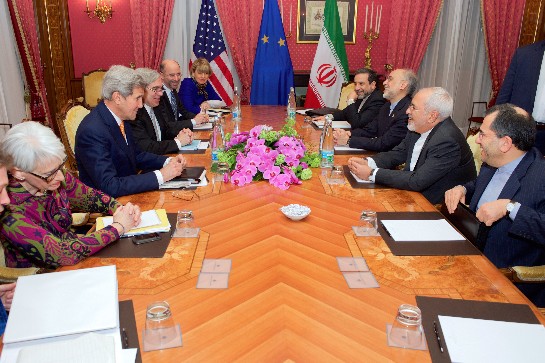
Why We Still Need the Iran Deal: Two Years Later
Based on reports released by the International Atomic Energy Association (IAEA), Iran is in compliance with the parameters of the agreement, specifically regarding its levels of low-enriched uranium, heavy water, its reconfiguration of the Arak heavy water reactor, and the Fordow Fuel Enrichment Plant. In exchange for its compliance with the deal, sanctions on Iranian businesses and banks have been lifted. The intention is that retaining access to global markets and opportunities will encourage Iran to remain in compliance with the deal and abandon its nuclear weapons aspirations as the cost of pursuing a nuclear weapons program is too costly for the country to endure.
After ardently opposing the Iran Deal throughout his presidential campaign, President Trump certified on Monday that Iran is following the agreement. Monday’s announcement was the second confirmation of Iran’s compliance during the Trump presidency. In a law passed during the Obama Administration, Iran’s compliance with the deal must be certified every 90 days by the State Department. Secretary of State Rex Tillerson and National Security Advisor H.R. McMaster, proponents of the Iran Deal, agree that it is in the “national interest to certify Iran’s compliance.”
The Trump Administration has been vocal about its discontent with Iran’s antagonistic behavior in the Middle East. This Thursday, new economic sanctions on Iran were announced that target its ballistic missile program. Progress from the deal thus far could be undermined by this decision, threatening the integrity of the agreement. Following the news of the sanctions, President Rouhani stated, “We will stand up to the United States,” which could potentially endanger the future of the agreement.
Moreover, talking points released on Monday allege that Iran is in violation of the “spirit” of the agreement and outlines a list of grievances against Iran regarding its funding of terrorist activity through its proxies. These concerns suggest that the Administration is still looking to dismantle the deal in the future. The talking points implicate the previous Administration with the charge of ignoring the “full range of Iran’s many other malign activities.” Many of the talking points, however, are not critiques of Iran’s compliance with the nuclear deal, but rather other activities that are irrelevant to the viability of the agreement such as its ballistic missile program. These issues are distinct from the intention of the nuclear deal and should be dealt with accordingly in a separate manner.
ASP supports the Iran Deal and believes it has been effective in reducing the amount of weapons-grade nuclear material and enrichment technology needed for Iran to make a nuclear weapon. Furthermore, the decrease in economic sanctions has reopened previously closed markets, better integrating Iran into the world economy. With additional revenues, Iran can develop its economy, invest in infrastructure, and better provide for their citizens. Most importantly, limiting Iran’s nuclear program has increased global safety and reassured our allies of our security commitments. The deal, therefore, needs to be maintained as a basis for good-faith future nuclear talks with Iran following the deal’s expiration date.






